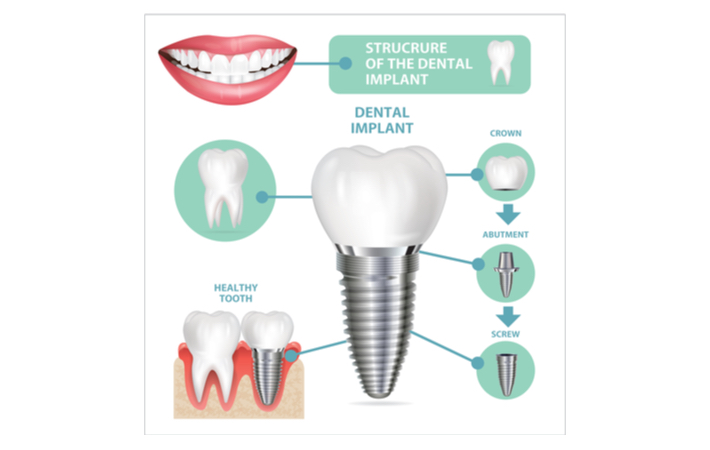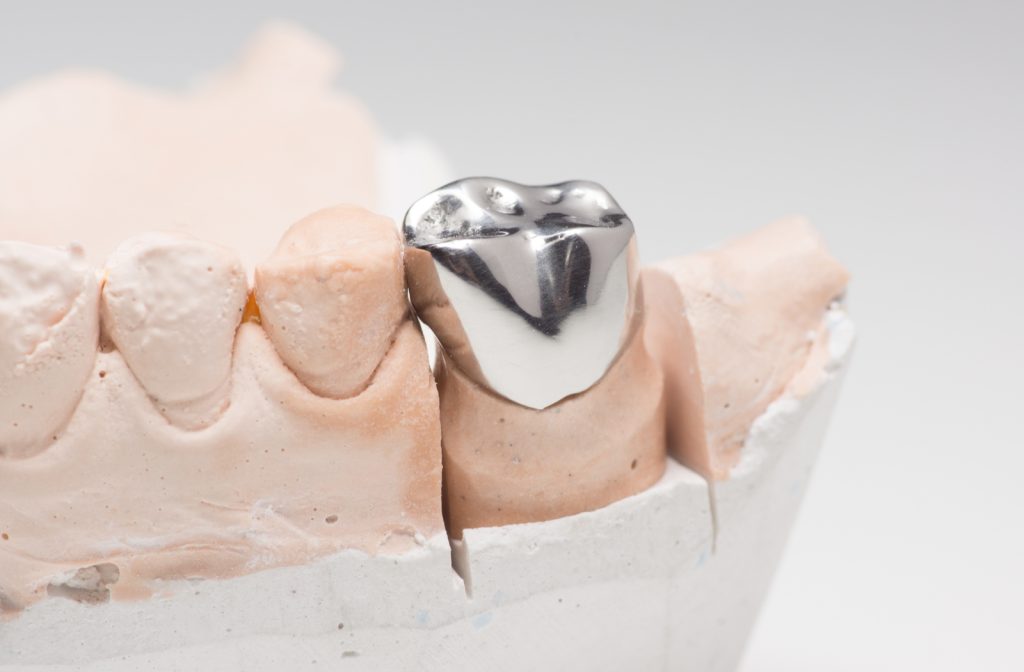Are Crowns the Same as Dental Implants?
With the number of dental procedures available to you, it can sometimes be confusing differentiating between what each one does for your teeth.
Crowns and dental implants are two of these procedures that your dental professional can provide to enhance and secure your smile. Our clinic has offered dental implants in Mississauga for several years now, and as a result we have quite a bit of experience with this topic.
Let’s explore what crowns and dental implants are, including what differences highlight each process.
Crowns vs. Dental Implants
When you hear about crowns and dental implants, it can sound similar—but the technical details and utilization are where the differences come in.
The most significant difference between crowns and dental implants is that crowns serve as caps to cover the tooth to cover up damage like cracked or weakened teeth. Your dental professional will determine whether your new crown should cover the tooth to the gum line or if only a partial covering is necessary.
Dental implants serve as replacement tooth roots and connect directly to the jawbone. Dental implants are a strong foundation for fixed or removable replacement teeth to match your natural teeth and restore natural function.
Let’s highlight some of the characteristics of crowns and dental implants.
Crowns
A crown is a cap for a damaged tooth. A crown can be made from different materials and is used to cover any severe dental problems such as missing or cracked teeth.
The damage crowns cover-up can occur from:
- Breakage
- Tooth decay
- Root canal
- Large filling
- Discolouration from metal fillings
Crowns cover anything that may interfere with your ideal smile.
Crowns can consist of different materials, including:
- Porcelain
- Ceramic
- Zirconia
- Metal
- Composite resin
- A combination of materials
Your dental professional will be able to determine the best crown cap for your teeth.

Dental Implants
Dental implants have everything to do with replacing missing teeth. Suppose you choose to replace some or all of your missing teeth. In that case, your dental professional may recommend artificial teeth attached near the jawbone with a dental implant.
Dental implants are surgically placed in your jawbone and serve as roots of missing teeth.
Dental implants may be for you if you:
- Have one or more missing teeth
- Have healthy oral tissues
- Don’t have health conditions that may affect bone healing
- Are unable or unwilling to wear dentures
The recovery process occurs over several months, and the bone surrounding the implant grows. Following this growth, replacement teeth are attached with a metal connector to the implant, filling the gap.
There are two different types of dental implants:
- Endosteal implants—these implants are placed in the bone and usually resemble small screws. Endosteal implants are surgically inserted into the jawbone, serving as tooth roots.
- Subperiosteal implants—these implants are placed on the bone and used when there’s not enough healthy jawbone available to support an endosteal implant.
It’s important to know what procedure is right for you, and your dental professional can guide you through it.
Are Crowns Better Than Dental Implants?
When discussing crowns and dental implants, it’s important to note that one isn’t better than the other. They both serve different purposes and have different characteristics.
Dental implants are tooth substitutes that serve as a complete tooth reconstruction down to the root. The recovery period differs from crowns due to the root reconstruction, which can take several months.
Crowns focus on the outer portion of your tooth and do not reconstruct from the root up. Because of this, some of the maintenance depends on you.
Some tips to follow while taking care of your new crown include:
- Brushing your teeth twice daily
- Flossing daily
- Avoid hard foods to prevent cracking
- Consult your dental professional if you grind or clench your teeth
Crowns and dental implants serve different functions—your dental professional will be able to conduct a thorough exam and determine what you need.
What’s Right For You?
Determining what procedure is best for you comes down to various factors and what your dental health situation permits. Knowing the differences and the process of each procedure is a great first step. Book an appointment at our Mississauga dental clinic to learn more about crowns and dental implants, and learn what procedure is right for you.



